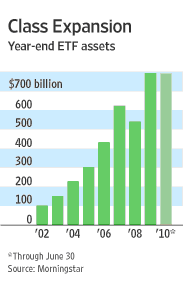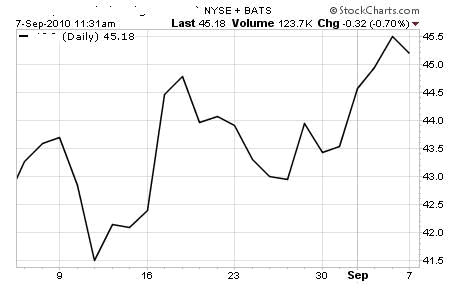-
Population growth and diminishing
farmland - I don’t like ETFs, here’s why
- The three exceptions to the rule
Okay, it’s not news that Jim Rogers likes agriculture. He’s
taken every opportunity to tell anyone who will listen that he likes
farmland, corn, wheat, rice – and just about every other agriculture
commodity.
But unless you have a margin account on a commodity futures
exchange, you probably can’t follow his advice to a T.
In other words, if Jim shows up on CNBC and says he likes
rice (as he did on August 28th – you can watch the video by
clicking
here) it’s frustrating to sit on the sidelines if you don’t have a
futures account.
And I’m not recommending that you should open a futures
account and simply follow Mr. Roger’s advice every time he’s on TV. Even if
you have a futures account, you know that it’s almost a full-time job keeping
track of the complicated options and futures contract strategies that would
be considered entry-level for most traders.
But I do think your
portfolio should have some exposure to agriculture, for reasons so simple
that a kindergartner can understand them:
The biggest reason is population growth. According to a
2004 study from the United Nations, “World
population is projected to grow from 6.1 billion in 2000 to 8.9 billion in
2050, increasing therefore by 47 per cent.”
The other almost-as-big reason is that the long trend of
declining farmland acreage has to reverse. I found a study done by Utah State
University titled, “Fifty Years of Farmland Change:
Urbanization, Population Growth and the Changing Farm Economy.”
In this study, they say that total farmland in the continental US declined by
over 200 million acres between 1949 and 2002.
If you want to get exposure to agriculture commodities,
there’s one simple investment you can buy, and you don’t need to go into hock
to open a special margin account or even know the first thing about
complicated options strategies.
Before you get too
excited, you should know that I’m talking about a specialized agriculture
commodity ETF.
If you’ve been a reader for more than a few weeks, you might
remember that I’m almost universally and philosophically opposed to these
investment vehicles. They frequently fail to generate returns for their
shareholders, and they’ve been recklessly billed as a “quick and easy”
cure-all.
I’m reminded of a terribly jaded and opportunistic quote
from an unnamed Wall Street Banker. With regard to regular investors, he
said, “When they quack, feed them.”
And for the past few years especially, regular investors
have been quacking for ETFs. They’ve been getting
fed, as ETF assets have expanded from under $100 billion in 2002 to well over
$700 billion this year.
In any event,
suffice to say that I’m not the biggest fan of ETFs as an asset class.
But there are exceptions.
In fact, I spent the better part of three months working
closely with my boss Ian Wyatt to put together a special report for our paid
service Global
Commodity Investing all about the ONLY three ETFs we like
today.
And our favorite agriculture ETF has done well since our
recommendation early last month:
Our subscribers are up almost 10% in less than a month on
this ETF.
It’s comprised of a variety of agriculture companies in just
about every sector, from actual farming companies, to tractor manufacturers,
fertilizer miners – even grain producers and processors in the growth centers
of South America and Asia.
I like this ETF for the exact reasons I like any investment:
it has a strong stable of profit-producing components, it’s in a sector of
the market that can only grow, and it has a relatively low expense
ratio.
It’s an ETF that does what it’s supposed to do: provide a
low-cost, sector specific alternative for regular investors.
Despite their best efforts, Wall Street managed to produce
an ETF that actually offers substantial value for shareholders.
If you want to place your portfolio alongside the
inevitability of more people and more farmland, then I recommend taking a
look at the full write up on this ETF, and our two favorites by clicking
here now.
Do you have a favorite agriculture investment? Please tell
me about it by writing me at this address: [email protected].
Good investing,
Kevin McElroy
Editor
Resource Prospector
 Facebook
Facebook
 Twitter
Twitter
